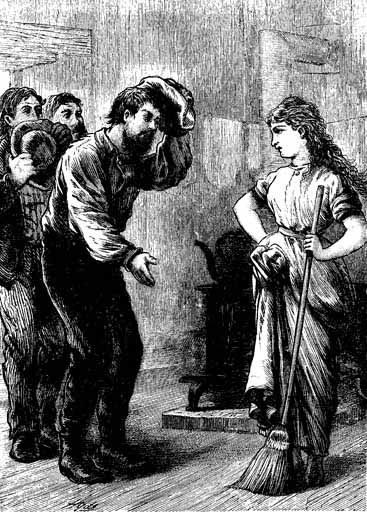On November 21, I wrote an article about a rather horrifying sentence that I overheard on the street. “Like there was no follow through” was a succinct encapsulation of the verbal scourge that is “like.” In that case, a lady appended like to an otherwise perfectly comprehensible statement for no apparent reason other than that she could. By doing so, she muddled her meaning, leaving us to wonder if there was actually no follow through or only something similar or akin to no follow through. Since then, I have overheard the abuse of “like” on virtually every outdoor excursion. Seldom is one instance of abuse bad enough to merit mention in the hallowed pages of this New Leaf Journal. Then I overheard: “Like, and like… yeah.” What now?
Overheard Abuse of “Like”
I was walking along a few weeks ago when my path crossed two young ladies. As our paths briefly crossed, I overheard the following like:
Like… and like… yeah. (Giggle)
A lady on the street

The lady started with “like,” as people are wont to do these days. Now, in the first verbal tic article, the lady did have a point. She probably meant to say that so and so did not follow through on something, but reflexively began the sentence with like. In this case, the speaker either began talking with no objective at all or lost that objective in the pause between “like” and “and like.” Surely, I asked myself, she would be able to save this lost train of thought? Hope avails the human heart.
But no. “Yeah.” She answered my question with “yeah.” Unfortunately, by “yeah,” she meant “no.” There was no point and apparently had never been one. Her thought, which never coalesced around anything of substance, ended with an awkward giggle. Four words, two “like’s,” and a giggle. More time was spent on the pauses than the words. Sometimes pauses are for dramatic effect. Here they were part of a depressing affect. That is dark stuff.
Please Stop and Gather Your Thoughts
Many unfortunate individuals have cultivated the “like” verbal tic for their entire lives. As I like (or actually) wrote in November: “As soon as kids learn to comfortably talk and breathe, they are inundated by adults and older kids saying ‘like’ every other word.” “Every other word” was intended to be a bit of an exaggeration, but the lady in today’s like horror story actually did say “like” every other word.
The battle against the abuse of “like” is probably unwinnable on a broad scale in the near term. But everyone can do his or her part to make a better world. If you catch yourself saying “like” when you should not, take a moment to think and gather your thoughts before you speak. This is especially important if you are in a social situation where you are uncomfortable and more likely to talk without thinking and to fill gaps with unfortunate filler like “like.” If someone you love says “like” too much tell him or her to slow down. Silence is golden sometimes, especially if a moment of silence is necessary for a coherent, definitive, “like”-less thought.
Follow the wisdom of Epictetus in his eloquent Enchiridion: “Be for the most part silent, or speak merely what is necessary, and in few words.”